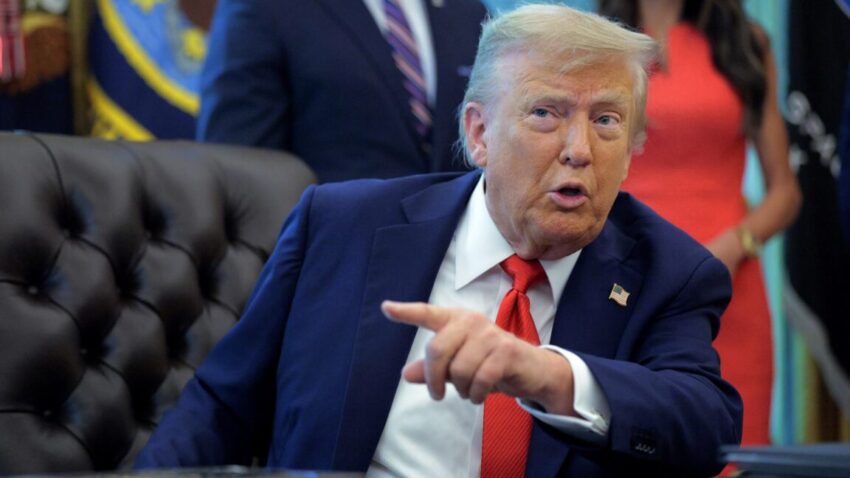
trump obtains another settlement as youtube agrees In a significant legal development, Google’s parent company, Alphabet, has agreed to pay $24.5 million to settle a lawsuit initiated by former President Donald Trump regarding the suspension of his YouTube account.
trump obtains another settlement as youtube agrees
Background of the Lawsuit
The lawsuit stems from the events surrounding the January 6, 2021, attack on the U.S. Capitol, which was incited by a rally held by Trump and his supporters. Following the violent events, YouTube suspended Trump’s account, citing violations of its policies against inciting violence. This suspension was part of a broader crackdown by various social media platforms on accounts associated with Trump, reflecting a growing concern over the spread of misinformation and hate speech online.
In response to the suspension, Trump filed a lawsuit against YouTube in 2021, claiming that the platform’s actions were politically motivated and infringed upon his rights to free speech. This legal battle highlighted the ongoing tensions between social media companies and political figures, particularly in the context of content moderation policies that many argue disproportionately affect conservative voices.
Details of the Settlement
Today, a court filing revealed that Alphabet has agreed to pay a total of $24.5 million to settle the lawsuit. Of this amount, $22 million is designated for Trump himself, which he has directed to be contributed to the Trust for the National Mall. This 501(c)(3) tax-exempt organization is dedicated to restoring and preserving the National Mall in Washington, D.C., and supporting the construction of the White House State Ballroom, a project Trump has recently announced plans for.
The remaining $2.5 million will be allocated to settle claims from other plaintiffs involved in the lawsuit, including the American Conservative Union and several individuals: Andrew Baggiani, Austen Fletcher, Maryse Veronica Jean-Louis, Frank Valentine, Kelly Victory, and Naomi Wolf. These plaintiffs also argued that their accounts were unfairly targeted and suspended by YouTube, echoing Trump’s claims of bias against conservative viewpoints.
Legal Implications
As part of the settlement, Alphabet has admitted no wrongdoing, and the parties have agreed to dismiss the case. This aspect of the settlement is crucial, as it allows YouTube to maintain its stance on content moderation policies without setting a precedent that could invite further legal challenges. The decision to settle rather than engage in a prolonged legal battle may also reflect the company’s desire to avoid the potential for negative publicity and further scrutiny over its content moderation practices.
Reactions from Stakeholders
The settlement has elicited a range of reactions from various stakeholders. Supporters of Trump view the settlement as a victory, arguing that it validates their claims of bias against conservative voices on social media platforms. They contend that the financial compensation is a step towards holding tech companies accountable for their content moderation policies.
Conversely, critics of the settlement argue that it does not address the underlying issues of free speech and the role of social media in political discourse. They express concern that the financial settlement may embolden other political figures to pursue similar lawsuits against tech companies, potentially leading to a chilling effect on content moderation practices. The ongoing debate over the balance between free speech and responsible content moderation remains a contentious issue in the digital age.
The Broader Context of Content Moderation
The settlement also brings to light the broader context of content moderation on social media platforms. In recent years, platforms like YouTube, Facebook, and Twitter have faced increasing pressure to regulate content that may incite violence or spread misinformation. This pressure has intensified in the wake of the Capitol riots, prompting many platforms to reevaluate their policies and enforcement mechanisms.
As a result, tech companies have implemented stricter guidelines and have been more proactive in suspending accounts that violate their terms of service. However, these actions have sparked debates about censorship and the potential for bias in content moderation. Critics argue that these platforms often disproportionately target conservative voices, while supporters maintain that the measures are necessary to prevent the spread of harmful content.
The Role of the Courts
The legal landscape surrounding content moderation is evolving, with courts increasingly being called upon to adjudicate disputes between users and social media companies. The outcome of these cases could have far-reaching implications for how platforms regulate content and the extent to which they can be held accountable for their actions.
The Trump lawsuit against YouTube is just one of many cases that highlight the tensions between free speech and content moderation. As more individuals and organizations pursue legal action against tech companies, the courts may play a pivotal role in shaping the future of online discourse.
Future Implications for Social Media Platforms
The settlement between Trump and Alphabet raises important questions about the future of social media platforms and their responsibility in moderating content. As political figures increasingly turn to the courts to challenge platform decisions, tech companies may need to reassess their policies and practices to mitigate legal risks.
Moreover, the financial implications of such settlements could lead platforms to adopt more cautious approaches to content moderation, potentially stifling open discourse. The balance between ensuring a safe online environment and preserving free speech is a delicate one, and the outcome of ongoing legal battles will likely influence how this balance is maintained.
Public Perception and Trust
The public’s perception of social media platforms is also at stake. As users become more aware of the legal battles and settlements involving these companies, trust in their ability to fairly moderate content may wane. This erosion of trust could lead to increased scrutiny from regulators and lawmakers, further complicating the landscape for tech companies.
In light of these developments, social media platforms may need to enhance transparency in their content moderation processes. Providing users with clearer guidelines and explanations for account suspensions could help rebuild trust and mitigate backlash from users who feel unfairly targeted.
Conclusion
The $24.5 million settlement between Trump and Alphabet underscores the complexities of content moderation in the digital age. As social media platforms navigate the challenges of balancing free speech with responsible content regulation, the legal landscape will continue to evolve. The implications of this settlement extend beyond Trump and his supporters, impacting the broader discourse on free speech, accountability, and the role of technology in shaping public opinion.
As the debate continues, stakeholders from all sides will be closely watching how social media companies respond to legal challenges and public scrutiny. The outcome of these discussions will ultimately shape the future of online communication and the principles that govern it.
Source: Original report
Was this helpful?
Last Modified: September 30, 2025 at 5:36 am
1 views















